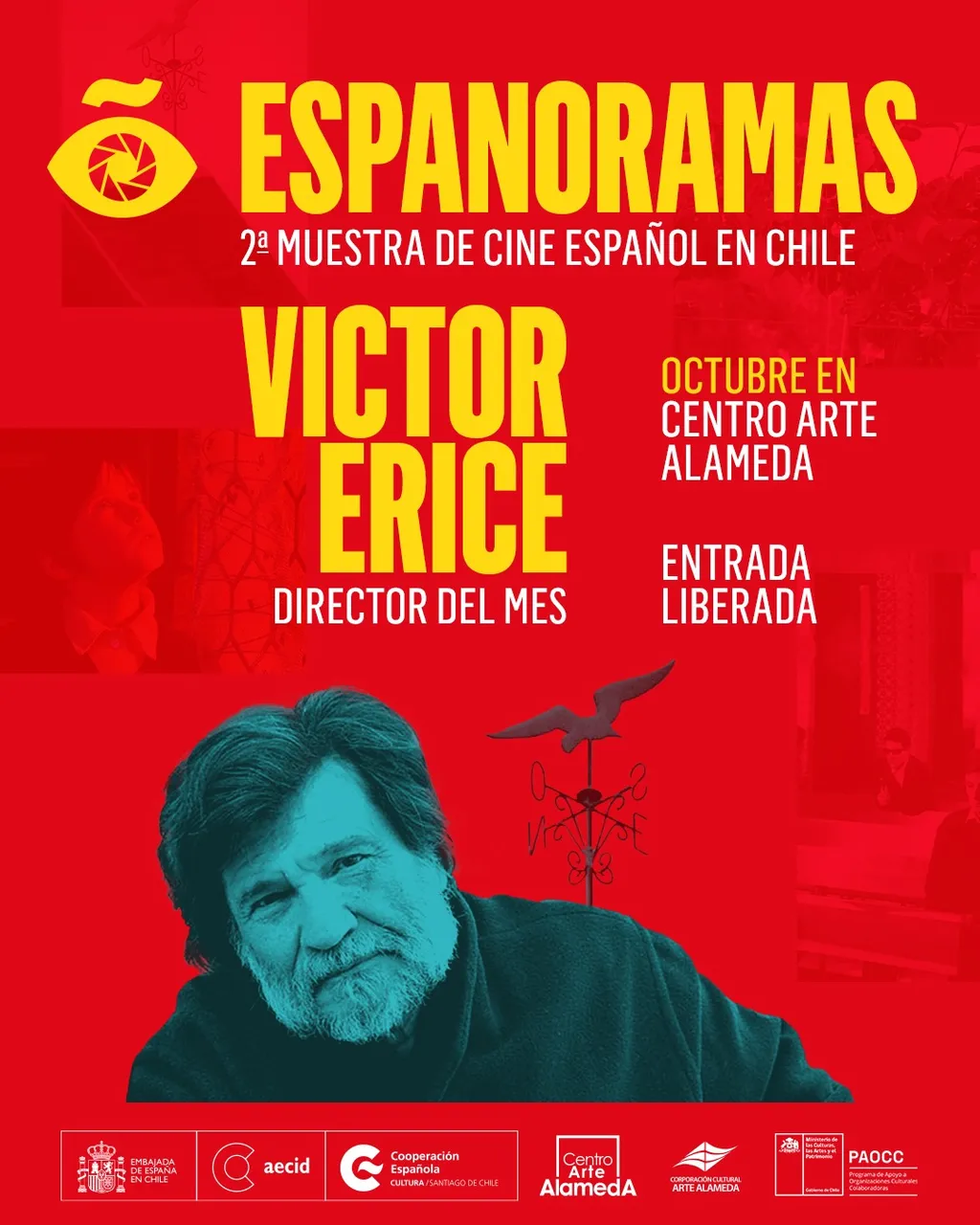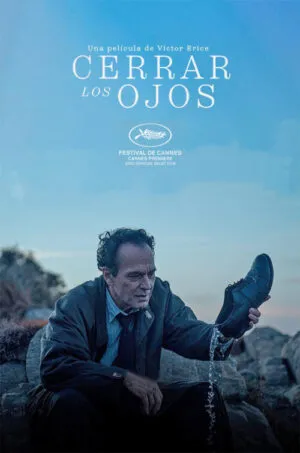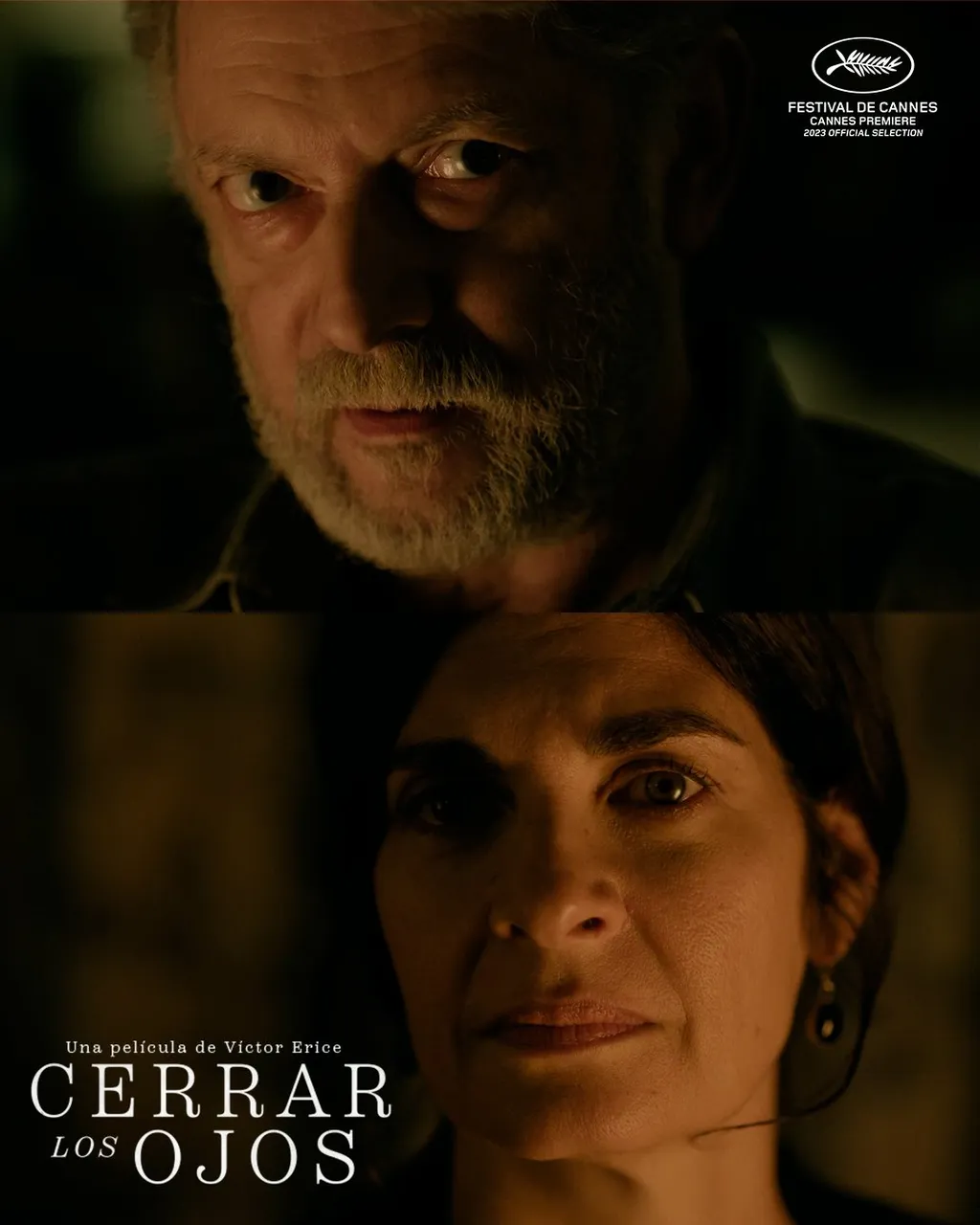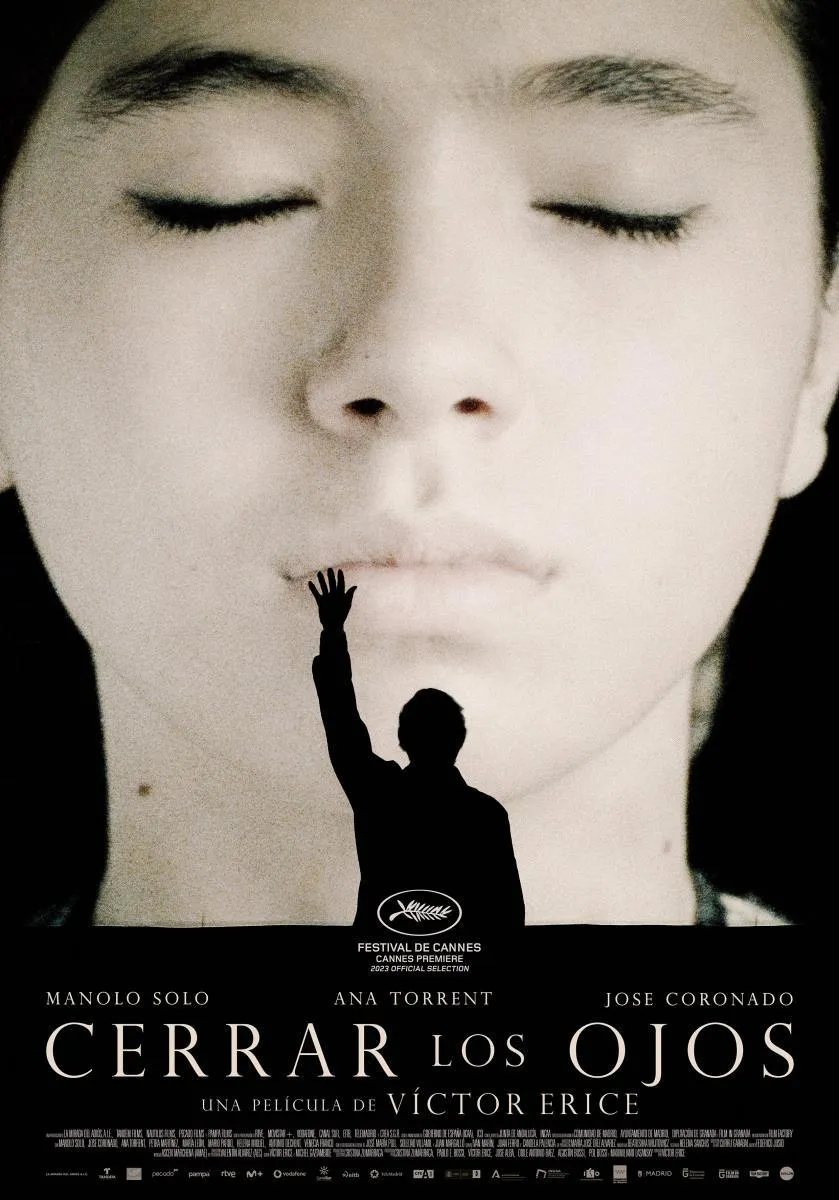
At the beginning of the month I posted a review of The Spirit of Beehive, the first major film by Spanish director Víctor Erice, and I mentioned that I had seen it in a Spanish film series called Espanoramas that was held simultaneously in Santiago and Buenos Aires and that opened with that film. For a month and thanks to the collaboration of Spanish cultural organizations, some of the most emblematic films by this director were screened and after my experience after that first film I wanted to go to several of the other screenings.
A principios de mes subí la reseña de El espíritu de la colmena, la primera gran película del director español Víctor Erice, y comenté que la había visto en un ciclo de cine español llamado Espanoramas que se celebró en simultáneo en Santiago y en Buenos Aires y que abrió con ese film. Durante un mes y gracias a la colaboración de organismos culturales de España, se proyectaron algunas de las películas más emblemáticas de este director y después de mi experiencia tras ese primer film quise ir a varias de las otras funciones.
The South, Nine Letters to Berta and Dream of light were three screenings I wanted to attend, but due to personal and work issues I was unable to see any of them and it was not until last Saturday, the last night of the cycle, that I was able to see something more of Erice, his most recent work (co-written with Michel Gaztambide) Cerrar los ojos (Close your eyes), a film that premiered in Cannes last year and received multiple nominations in different European film competitions. The film begins with an unannounced prologue of a movie within the movie and then, at the end of the scene, there's a shot that stops and a voice-over that introduces us to the central mystery of the story. Julio Arenas, a famous and highly celebrated actor, was filming a movie (La mirada del adiós) when he disappeared without a trace. His shoes were found on the edge of a cliff and the accepted hypothesis was that Julio - womanizer, alcoholic and unstable - had thrown himself into the sea, but his body was never found. Twenty-two years later, in the fall of 2012, a television program called Casos sin resolver, hosted by Marta Soriano, prepares an episode about the story of Julio Arenas and contacts Miguel Garay, director of La mirada del adiós, to grant them an interview. Many years have passed and most people are convinced of Julio's suicide, but what if it were not so? What other theories could there be to explain the disappearance and/or death of the actor?
El Sur, Nueve cartas a Berta y El sol del membrillo eran tres funciones a las que quería acudir, pero debido a cuestiones personales y laborales no pude ver ninguna de esas y no fue sino hasta el pasado sábado, la última noche del ciclo, en la que pude ver algo más de Erice, su obra más reciente (co escrita junto a Michel Gaztambide) Cerrar los ojos (Close your eyes), película se estrenó en Cannes el año pasado y que obtuvo múltiples nominaciones en distintos certámenes de cine europeo. La cinta inicia con un prólogo no anunciado de cine dentro del cine y luego, al terminar la escena, hay un plano que se detiene y una voz en off que nos introduce en el misterio central de la historia. Julio Arenas, un actor famoso y muy celebrado, se encontraba en el rodaje de una película (La mirada del adiós) cuando desapareció sin dejar rastro. Se encontraron sus zapatos al borde de un acantilado y la hipótesis aceptada fue que Julio - mujeriego, alcoholizado e inestable - se había arrojado al mar, pero nunca se encontró su cuerpo. Veintidós años después, en el otoño de 2012, un programa de televisión llamado Casos sin resolver, conducido por Marta Soriano, prepara un episodio sobre la historia de Julio Arenas y contacta a Miguel Garay, director de La mirada del adiós, para que les conceda una entrevista. Han pasado muchos años y la mayoría de las personas están convencidas del suicidio de Julio, pero ¿y si no fuera así? ¿qué otras teorías puede haber para explicar la desaparición y/o muerte del actor?
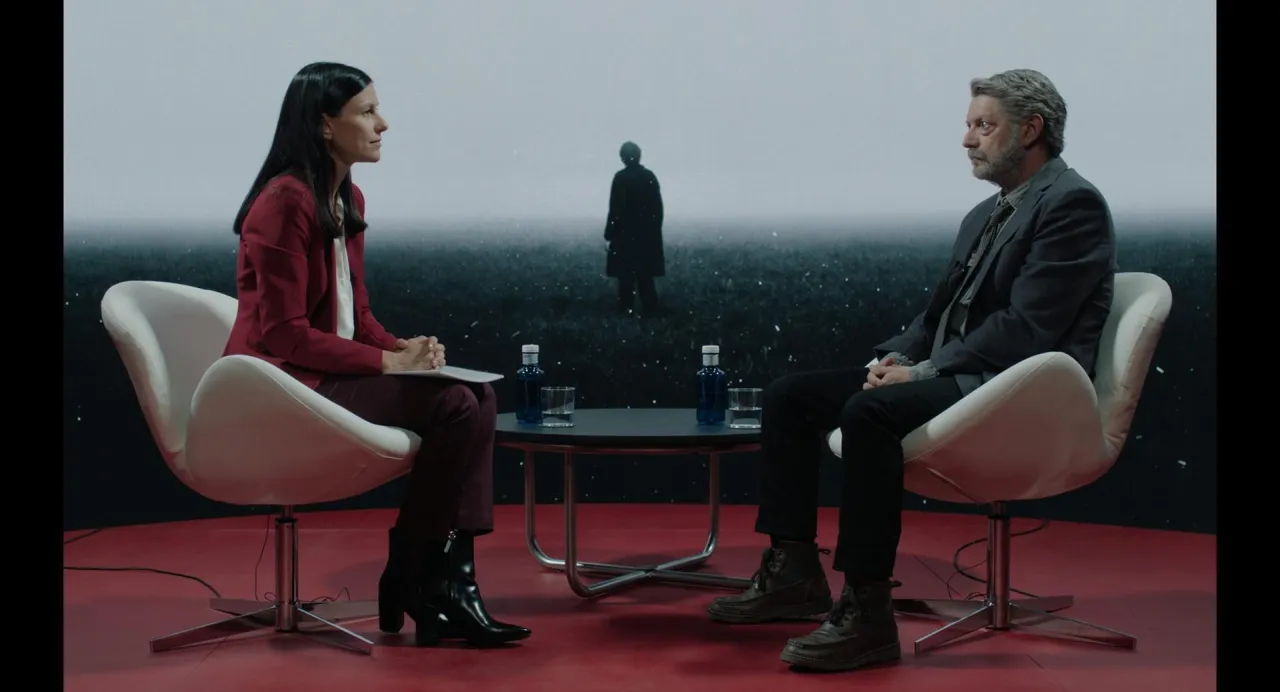
That is the central mystery of the film. However, there are also other stories, parallel, perpendicular, tangent or unrelated, that help to give greater depth to the script of Close Your Eyes, where the protagonist is not Julio Arenas, but Miguel Garay, who was also Julio's friend since his youth and whose "career" as a film director ended with the disappearance of his protagonist and friend. He had barely directed a film by then and later decided to devote himself to literature and soon after only to translation and the writing of some stories, more for personal exercise than professionally.
Ese el el misterio central de la película. Sin embargo, existen también otras historias, paralelas, perpendiculares, tangentes o ajenas, que ayudan a darle mayor profundidad al guión de Cerrar los ojos en donde el protagonista no es Julio Arenas, sino Miguel Garay, quien además era amigo de Julio desde la juventud y cuya "carrera" como director de cine terminó con la desaparición de su protagonista y amigo. Apenas había dirigido una película para entonces y luego decidió dedicarse a la literatura y poco después sólo a la traducción y a la escritura de algunos cuentos, más por ejercicio para sí mismo que de forma profesional.
As the film progresses, we get to know Miguel and his past better: the separation from his wife, what happened to their son, the novels he published, what he no longer writes and the hippie life he lives in a town on the Spanish coast where he has a vegetable garden and a dog, as well as a few kind and younger neighbours. Through Miguel we also get to know Julio and other characters, such as Ana, Julio Arenas' daughter; Lola, Julio's (and also Miguel's) Argentine ex-girlfriend, played by Soledad Villamil; Max Roca, the editor of that unfinished film; and Belén Granados, a woman who seems to have found an answer to the mystery of the missing actor. The performances of each and every one of them are wonderful and the story heads, as in a good novel, towards the end without rushing, but without stopping. Some people may find the 169-minute length of Close Your Eyes excessive (and yes, there are some things that I think could have been omitted or reduced) but it's undeniable that the film is moving, exciting, bittersweet and - in my opinion - almost readable. Unlike my previous encounter with Erice, The Spirit of Beehive, in which there were many silences and images that speak without the need for words, in this other film there are many dialogues, voice-overs, stories, rumours, hypotheses. There's almost always someone telling something, but both styles (the more visual and symbolic; and the more direct, conversational) are very well worked by the director in both films.
Conforme avanza la película, vamos conociendo mejor a Miguel y su pasado: la separación de su esposa, lo que le pasó a su hijo, las novelas que publicó, lo que ya no escribe y esa vida muy hippie que vive en un pueblo en la costa española en donde tiene un huerto y un perro, además de unos pocos vecinos amables y más jóvenes. A través de Miguel también vamos conociendo a Julio y a otros personajes, como Ana, la hija de Julio Arenas; Lola, la ex novia argentina de Julio (y también de Miguel), interpretada por Soledad Villamil; Max Roca, el encargado del montaje en aquella película inacabada; y Belén Granados, una mujer que parece haber hallado una respuesta al misterio del actor desaparecido. Las actuaciones de todos y cada uno de ellos son maravillosas y la historia se dirige, como en una buena novela, hacia el final sin apresurarse, pero sin detenerse. Hay quien pueda encontrar excesivos los 169 minutos de duración de Cerrar los ojos (y sí, hay algunas cosas que creo que pudieron omitirse o reducirse) pero es innegable que la película resulta conmovedora, emocionante, agridulce y que - en mi opinión - casi puede leerse. A diferencia de mi anterior encuentro con Erice, El espíritu de la colmena, en el que habían muchos silencios e imágenes que hablan sin la necesidad de palabras, en esta otra película hay muchos diálogos, voces en off, relatos, rumores, hipótesis. Casi siempre hay alguien contando algo, pero ambos estilos (el más visual y simbólico; y el más directo, conversacional) son muy bien trabajados por el director en ambas películas.
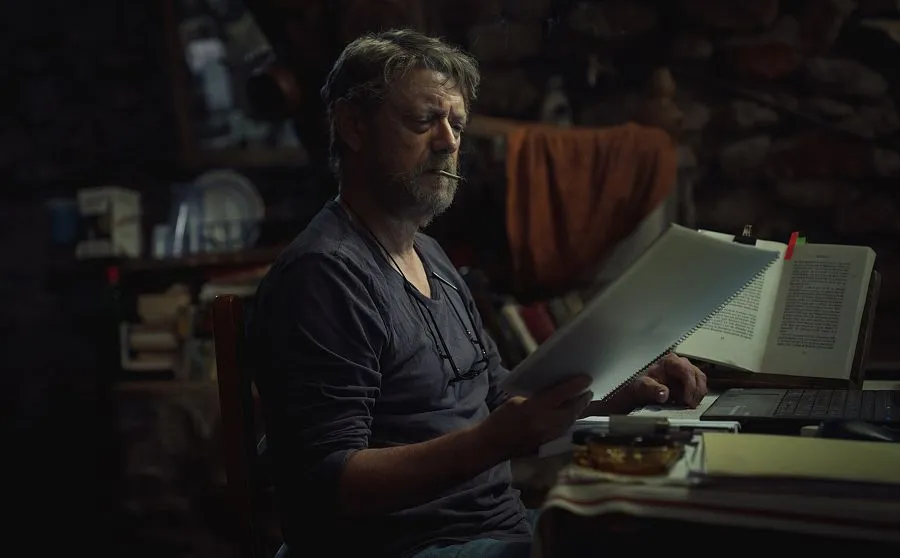
I found it curious to have been able to go to the screening of Erice’s first major film and, some twenty days later, to his most recent work, which are fifty years apart (fifty! What a career the Spanish director has had), so I still have a lot of his filmography to review, but the combined experience felt a bit like the closing of a cycle (figurative as well as literal), an impression that was reinforced by the fact that Ana Torrent, who plays Ana, the little girl in The Spirit of the Beehive, acts in Close Your Eyes as Ana Arenas, Julio’s daughter. The same Ana who gives life to two others.
Me resultó curioso haber podido ir precisamente a la proyección de la primer gran película de Erice y unos veinte días más tarde a su obra más reciente, entre las que media una distancia de cincuenta años, (¡cincuenta! Menuda carrera la del director español) así que me queda mucho por revisar de su filmografía, pero la experiencia combinada se sintió un poco como el cierre de un ciclo (figurativo, además del literal), impresión que se vio reforzada por el hecho de que Ana Torrent, quien interpreta a Ana, la niña pequeña de El espíritu de la colmena, actúa en Cerrar los ojos como Ana Arenas, la hija de Julio. Una misma Ana que da vida a otras dos.
I must confess that I'm not a fan of using a lot of fade to black for the transition between scenes and in this case Víctor Erice uses it a lot. A lot. However, that doesn't prevent the cinematography of this film from feeling like the rest of it: beautiful and melancholic. It's a story that is born from a mystery, that constantly dialogues with the past (without the need to use flashbacks), memory, but also secrets, the voids whose presence disorients us, that is part family history, part homage to friendship, part artistic vocation, part the power of literature and writing, that reflects on the inscrutable functioning of the human mind, on the possibility of leaving everything and starting over in another place, on leading a quieter, more hermit-like and self-sufficient lifestyle, but that within all these themes and characters erects a tribute to the world of cinema. The sequences inside the movie theater, the projectors that show, the way in which editing or movies are talked about, is very moving. And also, in my opinion, it's a film that, although it is long, saves the best for last. The first two thirds of Close Your Eyes are good, intriguing, nostalgic, but they work as a preamble to the last third, where emotions grow and it's impossible to get up from the seat until we reach that ending that leaves us with doubts, but about which we choose to believe what we want to happen. Excellent recommendation for lovers of Spanish cinema, dramas and mysteries, have you seen anything else by Víctor Erice? I'll read you in the comments.
Debo confesar que no soy fan de usar mucho el fundido a negro para la transición entre escenas y en esta oportunidad Víctor Erice lo ocupa mucho. Muchísimo. Sin embargo, eso no impide que la fotografía de esta película se sienta tal cual como el resto de ella: bella y melancólica. Se trata de una historia que nace de un misterio, que dialoga de manera permanente con el pasado (sin necesidad de ocupar flashbacks), la memoria, pero también los secretos, los vacíos cuya presencia nos descolocan, que es a partes historia familiar, homenaje a la amistad, a la vocación artística, al poder de la literatura y la escritura, que reflexiona sobre el inescrutable funcionamiento de la mente human, sobre la posibilidad de dejarlo todo y comenzar de nuevo en otro lugar, sobre llevar un estilo de vida más tranquilo, ermitaño y autosuficiente, pero que dentro de todos estos temas y personajes erige un homenaje al mundo del cine. Las secuencias dentro de la sala de cine, los proyectores que muestran, la forma en que se habla de montaje o de películas, es muy conmovedora. Y además, en mi opinión, es una película que, si bien es larga, guarda lo mejor para el final. Los primeros dos tercios de Cerrar los ojos son buenos, intrigantes, nostálgicos, pero funcionan como preámbulo al último tercio, en donde las emociones crecen y es imposible levantarse del asiento hasta llegar a ese final que nos deja con dudas, pero sobre el cual escogemos creer lo que queremos que ocurra. Excelente recomendación para los amantes del cine español, los dramas y los misterios, ¿han visto algo más de Víctor Erice? Los leo en los comentarios.
Reseñado por @cristiancaicedo
Other posts that may interest you | Otros posts que pueden interesarte:
   |
|---|
